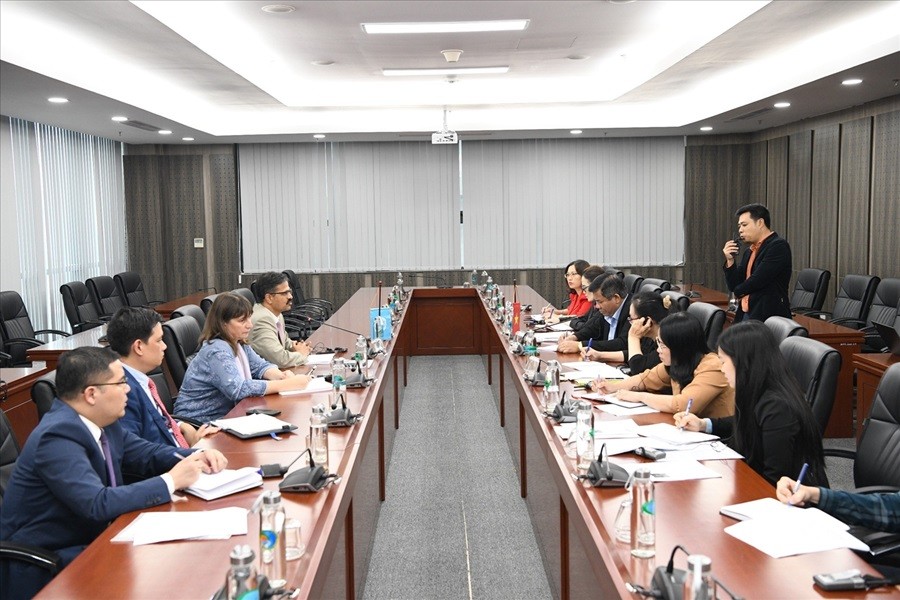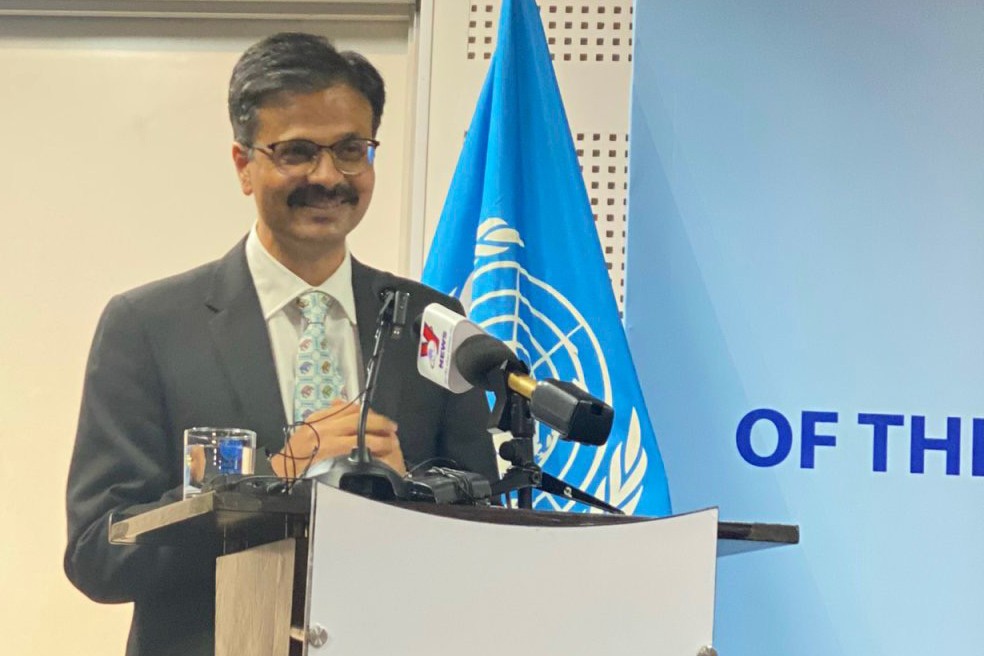
UN Rapporteur impressed with Vietnam's progress in economic development and gender equality
Latest
 |
| UN Special Rapporteur on the right to development Surya Deva visited and worked at the Committee for Ethnic Minorities. (Photo: DT) |
Please share us why you chose Vietnam to visit as the United Nations Special Rapporteur on the right to development?
The UN Special Rapporteurs consider a number of factors to decide which countries to visit for two official country visits every year. I selected Vietnam, among other factors, because it provides an opportunity to assess both progress in realising the right to development and the ongoing challenges in terms of securing inclusive and sustainable development.
Could you please share your impressions about your working visit to Vietnam?
Vietnam has made impressive progress in achieving economic development and reducing poverty. It has also taken several measures to promote gender quality and integrate labour rights or sustainability provisions in trade agreements. However, the Government should do more to create an environment conducive to active and meaningful participation of people in decision-making processes at all levels. Moreover, special efforts should be made to ensure that marginalised or vulnerable groups such as ethnic minorities and persons with disabilities are not left behind in realising all sustainable development goals.
 |
| UN Special Rapporteur on the right to development Surya Deva. (Source: ohchr.org) |
It is known that you are very interested in the role of businesses in ensuring human rights. During your visit, there were many opportunities to work with representatives of the business community and visit businesses in different fields. Could you share your comments and recommendations with them?
Businesses have a key role to play in realising the right to development. I had an opportunity to visit and meet representatives of several companies operating in various sectors. It is a pleasure to note that the companies which I had visited are integrating latest technologies and innovations in their operations, promoting welfare of their employees, supporting transition towards renewable energy or supporting community projects. At the same time, representatives of these companies were neither aware of international standards related to responsible business conduct nor had policies and processes in place to deal with sexual harassment in the workplace. So they should act in line with international standards, rather than merely taking philanthropy or CSR measures. It will also be important for the Government to provide more incentives to companies to embrace responsible business conduct. The Vietnam Chamber of Commerce and Industry (VCCI) should raise awareness about international standards and build capacity of small and medium size enterprises.
Please provide your comments on gender equality and women's empowerment in Vietnam? What are good examples does Vietnam have on this issue? And what challenges are there that need to be addressed?
Vietnam had made progress in ensuring the equal participation of women in decision-making bodies at different levels of the Government and public administration. For example, 30.26% of the seats in the National Assembly are being held by women and three of the eighteen Ministers in the Government are women. It was also good to note that the 2019 Labour Law of Vietnam prohibits and penalises sexual harassment in the workplace and that the Law on Domestic Violence Prevention and Control adopts a human rights-based approach to domestic violence.
Building on these steps, the Government should also ratify the ILO Convention No. 190 on Violence and Harassment and take proactive measures to address imbalance in sex ratio at birth as well as discrimination in the retirement age for men and women. The Government should also take measures to address under-representation of women with disabilities and from ethnic minorities at all levels of the Government.
Vietnam is one of the countries most severely affected by climate change. After your visit to Vietnam, especially local visits, what recommendations do you have?
Vietnam is highly vulnerable to climate change impacts such as sea level rise, biodiversity loss and marine plastic pollution. Climate change and environmental pollution pose the greatest risk to the poor, ethnic minorities and other people in remote, mountainous and low-lying areas, persons with disabilities, children and women. Communities living in the Mekong Delta have been facing soil degradation from over-farming, unpredictable monsoon floods, droughts, increasing infiltrations of saline water in the rice fields and salt deposits in the nearby grounds. I saw first-hand the coastal erosion in Bao Thuan Commune of the Ben Tre Province caused by the sea level rise.
The Government should conduct the environmental (or social) impact assessment seriously before approving new development projects and should ensure a meaningful participation of people in such processes.
How do you think of the beauty of the country and people of Vietnam?
We were very warmly received by the Government officials at all levels. We also felt that people tend to take ownership to keep their neighbourhood and in turn country clean. There was not much time to explore the scenic beauty of the country.
| Mr. Surya Deva (Indian nationality) begins taking on the position of United Nations Special Rapporteur on the right to development for a 3-year term from May 1, 2023. He currently is a Professor at Macquarie Law School and Director of the Center for Environmental Law at Macquarie University, Australia. He researches in the areas of business and human rights, comparative constitutional law, international human rights law, sustainable development, climate change and gender equality. He has advised United Nations agencies, governments, national human rights institutions, multinational corporations, trade unions and NGOs on business and human rights issues. |













